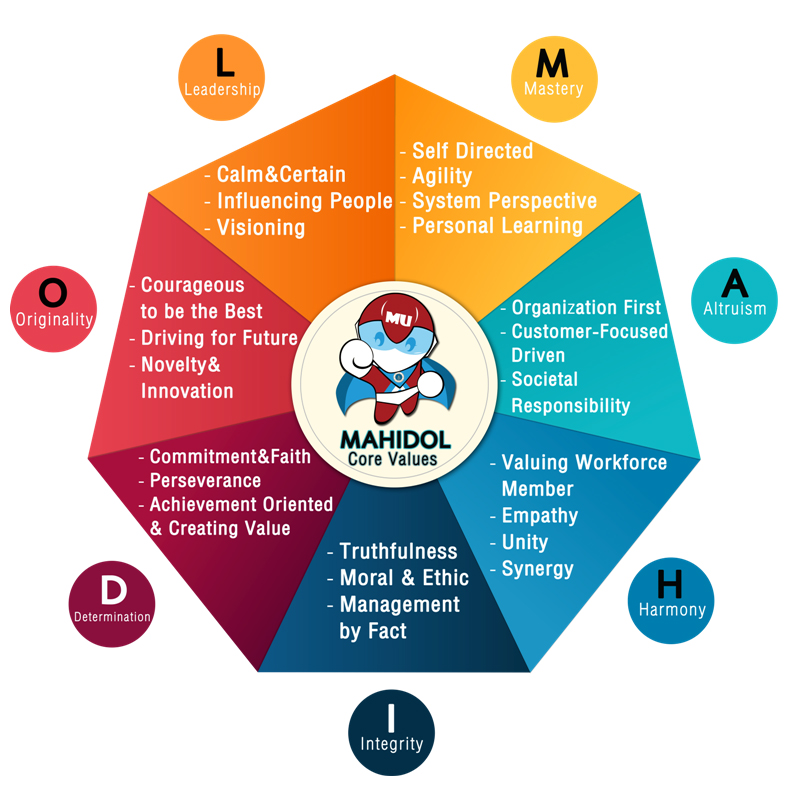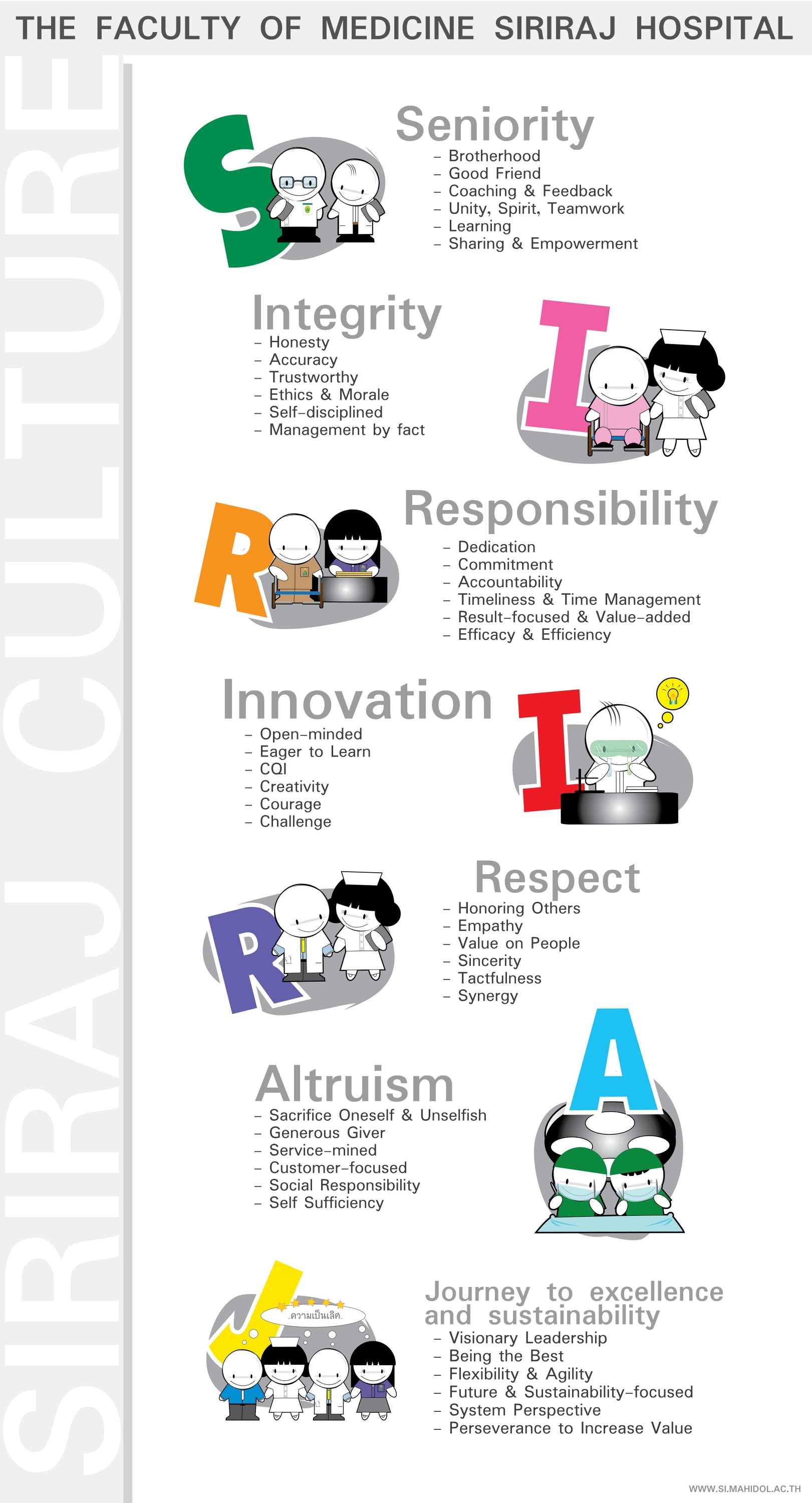Facts
Mission, vision, core value and education philosophy of Mahidol universityVision
Mahidol University is determined to be a world class university.
Mission
To excel in health, sciences, arts, and innovation with integrity for the betterment of Thai society and the benefit of mankind.
Mahidol Core values
M = Mastery
A = Altruism
H = Harmony
I = Integrity
D = Determination
O = Originality
L = Leadership

Mission, vision culture of Faculty of Medicine Siriraj Hospital
Vision
The Medical Institute of the Kingdom, towards International Excellence.
Mission
Faculty of Medicine Siriraj Hospital has the mission to produce quality graduates, conduct researches, create academic atmosphere, and to be the leader in the society that provides quality and up-to-date medical services with international standard, to gain trust with utmost popularity that will lead to good health and better quality of life among Thais.
SIRIRAJ Culture
- Seniority
- Integrity
- Responsibility
- Innovation
- Respect
- Altruism
- Journey to Excellence and Sustainability



